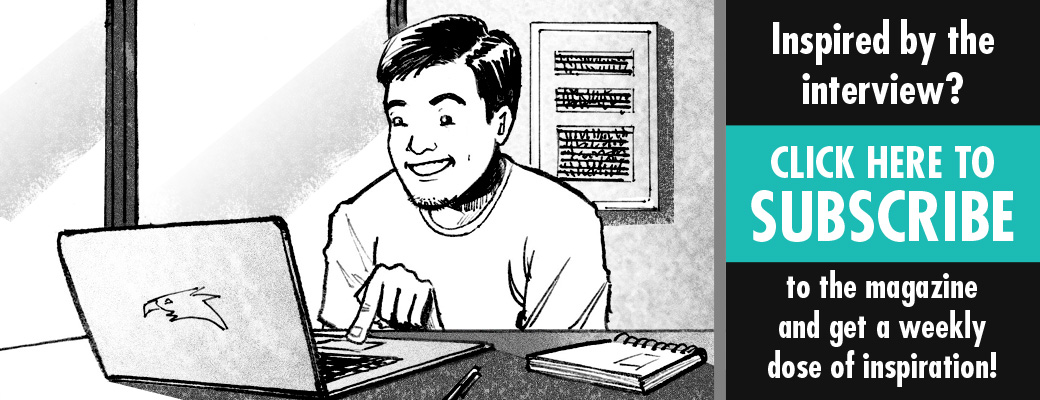 Nikki Alfar is a wife, mother, fictionist, ballroom dancer, kickboxer, and origami folder. While she has yet to receive acclaim for folding, boxing, dancing, mothering, or wifing – go figure – she has managed to cadge repeated recognition out of the Palanca, Nick Joaquin, and international Mariner literary authorities, as well as back-to-back National Book Awards for her story collections WonderLust (Anvil Publishing) and Now, Then, and Elsewhen (UST Press).
Nikki Alfar is a wife, mother, fictionist, ballroom dancer, kickboxer, and origami folder. While she has yet to receive acclaim for folding, boxing, dancing, mothering, or wifing – go figure – she has managed to cadge repeated recognition out of the Palanca, Nick Joaquin, and international Mariner literary authorities, as well as back-to-back National Book Awards for her story collections WonderLust (Anvil Publishing) and Now, Then, and Elsewhen (UST Press).
She’s edited more speculative fiction anthologies than she can count – there’ve been many, and her math is egregious – including the acclaimed, annual Philippine Speculative Fiction. By trade, she’s a marketing and corporate copywriter, meaning she writes fiction alllll the time.
Nikki smokes like a chimney, and has two children with writer Dean Francis Alfar – Sage, 15, is also a published writer, and Rowan, 9, wants to be a game designer, YouTube star, or spaceship. They have a hedgehog, Ser Duncan the Tall.
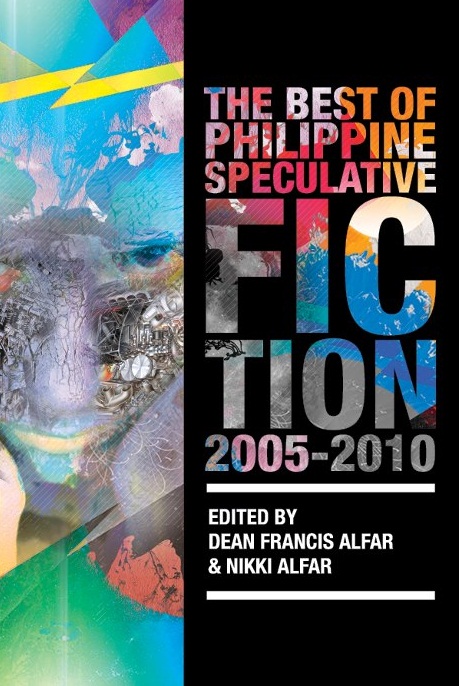 Q: Everyone has an origin story. Could you share with us the exact moment (or moments) wherein you realized that you wanted to become a storyteller?
Q: Everyone has an origin story. Could you share with us the exact moment (or moments) wherein you realized that you wanted to become a storyteller?
I grew up with four big brothers, and among us, we amassed what was then the complete collection of Hardy Boys books. So I think my big moment was when I found out that Franklin W. Dixon was not a single author, but a whole bunch of writers. I thought, “So, wait, anyone can do this thing? Like, anyone?”
Q: From that moment on, and all throughout your journey as a storyteller, what has been your biggest struggle?
Like a lot of people, really, The Big Idea – first, it was What to Write, which later became Why Write About That? In college, I received the distinct impression that the stuff I liked to read and write (fantasy, horror, science fiction, and so on) was not important enough; that my life experience was not socially-relevant enough; that I, as an upper-middle-class, mixed-race military brat, was simply not Filipino enough for my writing to be worthwhile.
Q: How have you been able to cope with (or overcome) this struggle?
I stopped writing for decades! It wasn’t until I was in my thirties that I decided, “You know what? I’ve birthed a child, I’m holding down a decently-successful career and damned-successful marriage, in light of which, worrying about anyone else’s opinion is just silly. Imma sound my barbaric yawp (to quote Walt Whitman, and Robin Williams quoting Walt Whitman), and let the chips fall.”
Q: What would you consider is the ONE thing that REALLY helped you level up your craft?
My mom (who is not a thing, but is arguably a Ms. Thing, haha). Thanks to her, I was already reading when I was two years old, and one of my earliest memories is of her, correcting my grammar – I was around three.
That may seem like a lot to put on a kid of that age, but because of it, grammar is like a Zen thing for me – I can play with language and be capricious, instead of having to worry about being correct. (It has its drawbacks; sometimes I’ll be sitting in a restaurant, frowning a bit, and Dean knows I’m mentally editing the menu. I can’t help myself.)
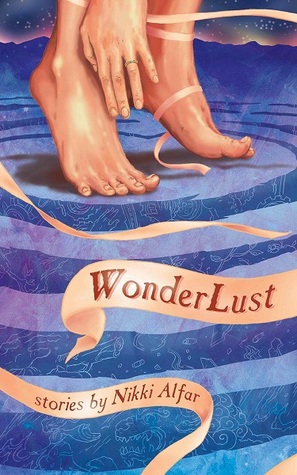 Q: What is one thing you’d wish you’d known before you started your creative career? Why?
Q: What is one thing you’d wish you’d known before you started your creative career? Why?
The best way to learn to write is to write. Also to read, but my point is, it’s not like brain surgery, where you’d damned well better know every available theory and principle before you pick up a scalpel. It’s more like dancing – it’s good to have some understanding of the fundamentals, but really, you learn best by seeing what others do, and trying to do it.
People frequently tell me, “Oh, I wish I could dance, but I have two left feet,” or something like that. And more often than not, I suspect, that means they’ve gone out on a dance floor twice or thrice, and decided they’re just no good at it.
What I’d love for people to realize is that writing, like dancing, is a learnable skill; it may take talent to be great at it, but you can be pretty damned good at it, without Divine Blessing from Above. To further analogize, it’s like learning to walk – where would we all be, if we gave up just because we didn’t get it, the first couple of tries?
Q: What drives or inspires you to continue telling stories?
Some people are genuinely moved by the muse – I think Dean is one of them; an idea will occur to him, and he has to find time to write it down, or it will gnaw at him (or the fact that he has forgotten what it was will gnaw at him!). I’m not like that; I need to have a specific goal to write toward – to tickle a particular editor, or to join a contest, or to meet a challenge, that kind of thing.
I think it’s because, that way, I never need to worry about why I’m writing whatever I’m writing. I work best with parameters to fulfill (or fudge, while still creating something that my target editor/publication/what-have-you will find irresistible; I’m perverse like that).
Q: What does your average day look like? (And when do you fit in the time to write or create stories?)
Remember, you asked! 😀
- 10 a.m. – I wake up around this time, because I sleep around two (or later). I have a cigarette and Coke Zero (Do not expect coherence otherwise), tend to our hedgehog Duncan, do some stretching and balancing exercises, and freshen up. I try (but don’t always remember till later) to set out what I’m cooking for dinner.
- 11 a.m. – I check my email and get to Work that Actually Earns Money. I only have about five hours to do what needs doing, but luckily I am a freakishly-fast copywriter. Even so, I maximize my time by checking Facebook only once a day, though I do take periodic breaks to clear my brain, with iPad games and hedgehog-petting.
- 4 p.m. – I stop for late lunch at this time, because at least one daughter is home, so we can get some face time (though Rowan’s usually busy with her iPad, so I end up reading while I eat, but at least we’re together). By the time I’m done, both daughters are home, so we’ll get their homework done early, unless I’m chasing a deadline.
- 6 p.m. – With all family members home by this point, I cook dinner. We eat around 7, shoot the breeze, then do homework, if we weren’t able to, earlier, or I cram in a little more work, if I’m still chasing that deadline. If we’re lucky enough that all that’s already handled, we all hang out and chill, maybe watch something together.
- 10 p.m. – By this time, both daughters are asleep (or pretending to be), so Dean and I get to our serious TV- and/or movie-watching, or companionable, side-by-side reading/iPad-playing. We’ll usually pop out to 7-Eleven at some point to grab a snack, or I’ll throw some sandwiches together, or (extravagantly) we’ll order pizza.
- 12(ish) – Dean and Dunk the hedgehog sleep. I take a candlelit shower, then do my daily brain-training apps (I’m trying to learn some Italian, and improve various skills). This is when I work on anything else pending, whether creative or commercial, which I might do till the sun comes up. But if I’m on top of things, I just play games till 2.
Obviously, this is not a schedule for sane, healthy people. Do not try this at home. 🙂
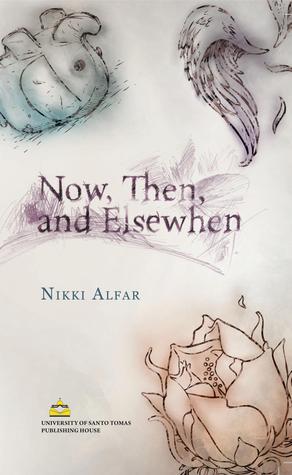 Q: How do you deal with distractions or challenges that you encounter while you’re working on your craft?
Q: How do you deal with distractions or challenges that you encounter while you’re working on your craft?
I estimate the probable duration of said distraction. If it won’t take more than 10 minutes, I’ll drop whatever I’m currently doing and tackle it head-on – “sooner begun, sooner done,” my mom always said. If it looks like it’ll take longer, I tell the distraction (often in the form of a daughter) to wait, while I finish my present train of thought, as well as work out how and when I’m going to make up the lost time.
Q: What do you do when you feel just completely uninspired or burnt out? How do you motivate yourself to start working again?
This is one of the silver linings of always working toward a specific goal, on a lunatic schedule – I don’t have time to indulge frickin’ inspiration. I do it because it needs to get done now, and if it doesn’t need to get done right now, then I don’t worry about it. Inspiration, like sleep, is for the weak.
Q: What would you say has been your most EPIC win so far?
Still my first Palanca Award, even though that was twelve years ago, because before that, I was never completely sure I could really write. Besides, it’s a funny story – Dean and I had both submitted entries to the Palancas, so we received two LBC packages. The first was for Dean, saying he had won the Grand Prize for Novel, and a part of me was convinced that the second was a letter telling me, “Dear Nikki, you suck, please never, ever torture us with your work again.”
But it turned out I’d won! I remember jumping up and down, and our daughter Sage jumping up and down with me, until she asked, “Mom, why are we jumping?” Dean was so proud, he kept forgetting to tell people about his own win.
Q: What would you say has been your biggest failure?
There’ve been many! Everyone gets rejected, and though that’s actually a good thing – you learn more from failures than successes – it doesn’t feel that way in the moment. But you get better at handling it – for instance, Dean and Kenneth Yu have put together three editions of their Filipino Fiction for Young Adults anthology, and I’ve been rejected for two of those three, despite being friends with both co-editors, and sleeping with one of them! You just have to take it in stride, figure out what didn’t work, and get better. We tell our daughters, “It’s okay to fail, as long as you fail up.”
Q: What, for you, has been the best way to promote yourself and your work to potential fans, clients, or publishers?
I’m so not good at this part, which is why I prefer to go with established publishers, and let them worry about promotion and all that. I do make announcements on Facebook, and try to attend whatever appearances I’m invited to, even though I’m secretly really intimidated by public speaking. But if it scares you, that’s often a good sign you should do it.
Q: What has been your game plan throughout your journey? What’s the BIG picture here? The ultimate dream? The end game?
Are you kidding? I wouldn’t even have books out if I hadn’t attended the UP Writers’ Workshop, where I was basically told, “Stupid girl, put a book together already!” Now I’m working on my next story collection, not as part of some Grand Plan, but simply because I think I’ve amassed enough stories to assemble a new book. I’m not a long-range planner; I just keep working on the next thing that seems to need doing, and applying what I’ve learned, to do it as well as possible.
Q: What, for you personally, has been the source of your ideas, creativity and talent?
God? Luck? God, in the form of luck? I’ve been fortunate enough to be born to a mother who gave me a love of stories and a decent education, to have family and friends who both support and challenge me, to be in a socio-economic position where I can afford to occasionally write stories instead of doing something more lucrative, to possess a weird brain that registers story potential in the history of ensaymada, to have married a man with the vision to come up with projects that push me to grow and do better (and also makes me laugh, and is not too hard on the eyes, either).
Seriously, I’m so lucky, I should buy lotto tickets.
Q: What is your big “WHY”?
From time to time, I have something to say and, apparently, the wherewithal to say it memorably. That’s honestly all there is to it.
QUICK-FIRE QUESTIONS
Q: What 3 stories (novels, short stories, comics, movies, documentaries, etc.) would you say influenced and inspired your work the most?
Stephen King’s Cujo (the first novel I ever read – I was seven, and thought it was a book about puppies), Gilda Cordero Fernando’s The Dust Monster, and Guy Gavriel Kay’s Lions of al-Rassan.
Q: What are the top books, writing books, blogs, podcasts, or workshops you’d recommend that helped you level up your skills? (Feel free to plug in as many as you’d like)
I’ll name only one, so people understand how serious I am about it: Strunk and White’s Elements of Style. There are many writing style guides, of course, but this is the most concise and easy to imbibe.
Q: If you could work remotely, from anywhere in the world, where would your office be? Why?
San Francisco – the energy and multicultural open-heartedness of that place is so motivating. Also, the food is killer.
Or possibly Jakarta, where I’ve never been, but it’s one of the few places left with no smoking ban, haha!
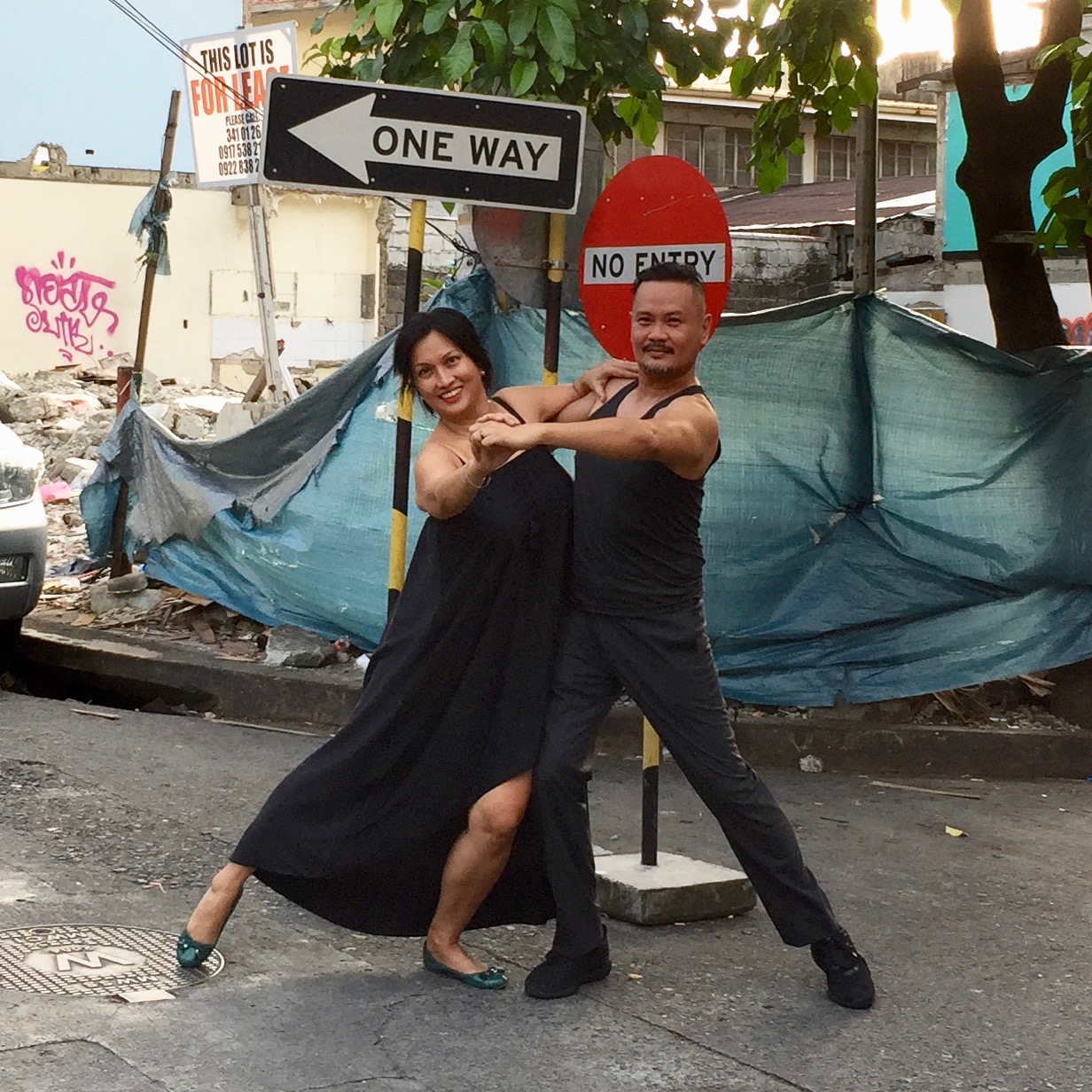 Q: Name ONE artist/writer that, if you could, you would pick their brain and find out all the hidden secrets behind their amazing work?
Q: Name ONE artist/writer that, if you could, you would pick their brain and find out all the hidden secrets behind their amazing work?
Kelly Link. I’m still trying to grow up to be her.
Q: Who do you consider your biggest mentor that helped you improve your skills?
(Doesn’t have to be someone you’ve met personally. Can be someone you look up to, or someone whose art or words really inspires you to get better.)
Dean, hands down, no question.

